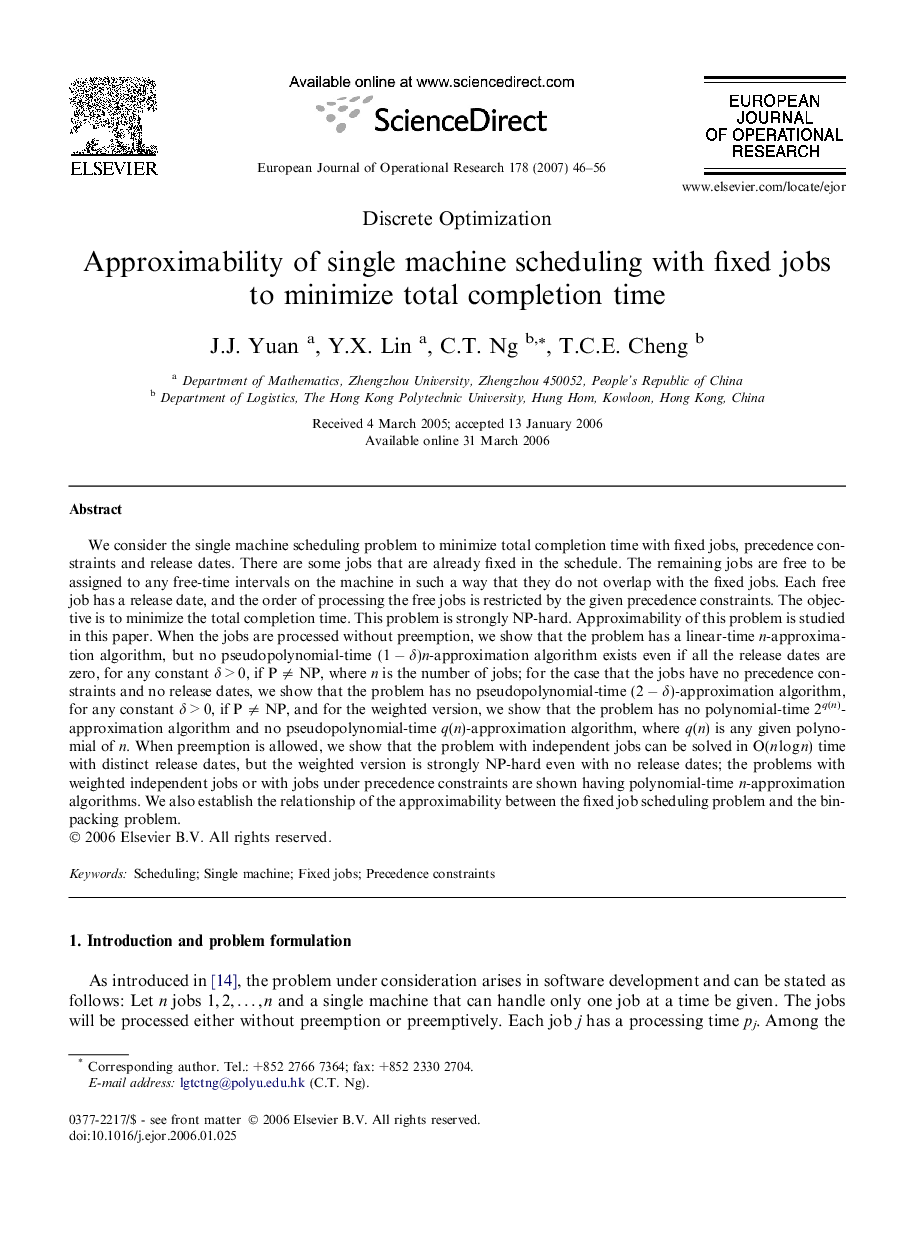| Article ID | Journal | Published Year | Pages | File Type |
|---|---|---|---|---|
| 479221 | European Journal of Operational Research | 2007 | 11 Pages |
We consider the single machine scheduling problem to minimize total completion time with fixed jobs, precedence constraints and release dates. There are some jobs that are already fixed in the schedule. The remaining jobs are free to be assigned to any free-time intervals on the machine in such a way that they do not overlap with the fixed jobs. Each free job has a release date, and the order of processing the free jobs is restricted by the given precedence constraints. The objective is to minimize the total completion time. This problem is strongly NP-hard. Approximability of this problem is studied in this paper. When the jobs are processed without preemption, we show that the problem has a linear-time n-approximation algorithm, but no pseudopolynomial-time (1 − δ)n-approximation algorithm exists even if all the release dates are zero, for any constant δ > 0, if P ≠ NP, where n is the number of jobs; for the case that the jobs have no precedence constraints and no release dates, we show that the problem has no pseudopolynomial-time (2 − δ)-approximation algorithm, for any constant δ > 0, if P ≠ NP, and for the weighted version, we show that the problem has no polynomial-time 2q(n)-approximation algorithm and no pseudopolynomial-time q(n)-approximation algorithm, where q(n) is any given polynomial of n. When preemption is allowed, we show that the problem with independent jobs can be solved in O(n log n) time with distinct release dates, but the weighted version is strongly NP-hard even with no release dates; the problems with weighted independent jobs or with jobs under precedence constraints are shown having polynomial-time n-approximation algorithms. We also establish the relationship of the approximability between the fixed job scheduling problem and the bin-packing problem.
